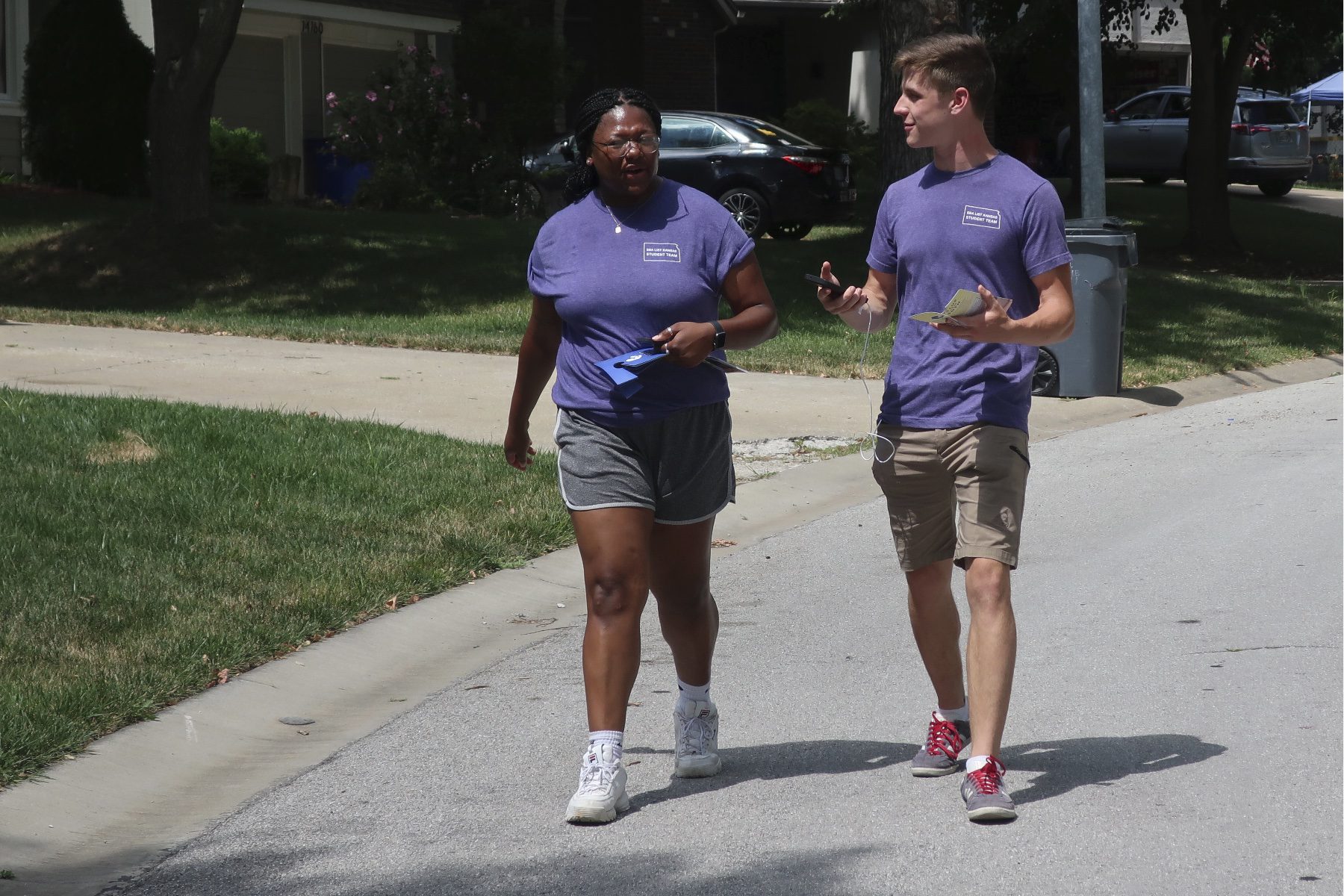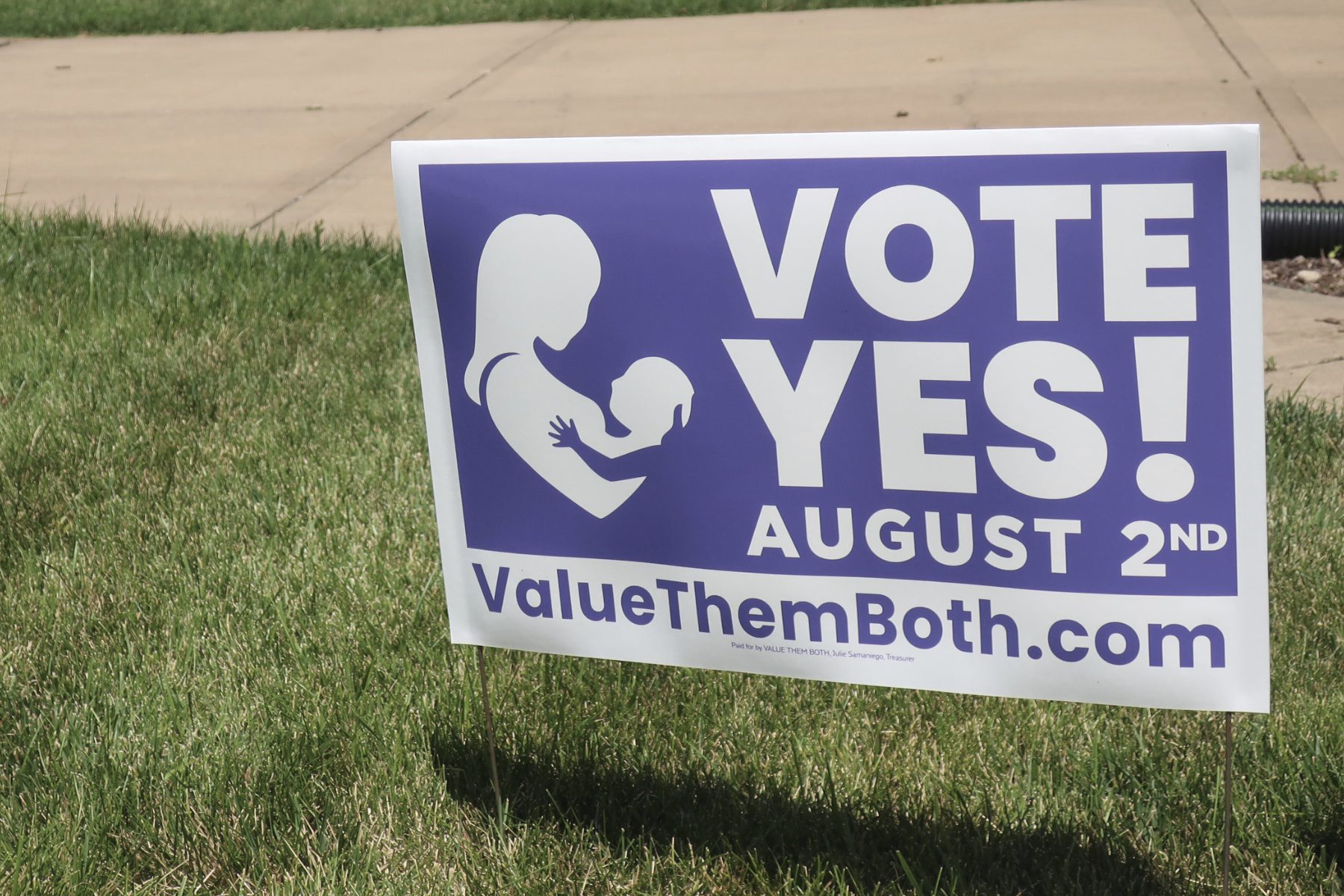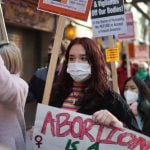Kansas — which has emerged as a regional abortion sanctuary in the weeks after the overturn of Roe v. Wade — will next week become the first state in the country to vote directly on whether to maintain abortion rights protections.
The August 2 election hinges on whether to amend the state’s constitution so that it explicitly does not protect the right to an abortion. Since 2019, the state Supreme Court has held that the state’s guarantee of “personal autonomy” extends to abortion, a ruling that had added an extra layer of security for abortion rights, even without Roe’s protection.
Amending the constitution would open the door for the state’s Republican legislature to pass abortion restrictions, including a potential total ban on abortion. (Gov. Laura Kelly, a Democrat who supports abortion rights and has vetoed previous restrictions, is up for reelection this fall in a race analysts consider a toss-up.) An abortion ban in the state would have implications not just for Kansans, but for the millions of people in neighboring states who currently have no closer options.
“The impacts on the region would be another state in the middle of the country that no longer is a place where people can get abortion care,” said Zachary Gingrich-Gaylor, a spokesperson for Trust Women, which operates an abortion clinic in Wichita. “It would significantly reduce the options for people and push this care even further outside of reach for millions of people.”
The race is arguably too close to call. A mid-July poll from FiveThirtyEight shows 47 percent of Kansans in favor of the amendment to expressly ban abortion in the constitution, compared to 43 percent opposed. The remaining 10 percent were undecided.
Kansas voters are evenly split on whether abortion should generally be legal, but the circumstances are believed to favor anti-abortion voters. With a Democrat in the White House, Republicans are expected to vote in higher numbers this year — a phenomenon that would favor the amendment’s backers. And the amendment was not on the ballot in the November election, but in Kansas’ August primary — an election with no statewide Democratic contests, but in which Republicans are voting on their nominee for attorney general.
Still, a number of Republican voters in Kansas may still oppose the amendment, and favor maintaining an abortion rights protection, said Michael Smith, a professor of political science at Emporia State University, about an hour southwest from Topeka. That stems from Kansas voters’ more “libertarian” streak — who might be open, he said to a message “along the lines of ‘stay off my land, stay away from my guns, stay away from my body.”
“The question is two things. One is the turnout ground game — who will get the voters to the polls?” Smith said. “And the second is if this libertarian streak will bite back. Will some voters who voted for Donald Trump twice vote ‘no’ on the amendment?”
Organizations on both sides are pouring in millions of dollars to campaign, a move relatively unheard of for an August ballot initiative vote.
The Value Them Both Association, which favors amending the constitution and allowing more abortion restrictions, has raised close to $4.7 million, with $1.25 million incoming from the Archdiocese of Kansas City, per state ethics filings. Kansans for Constitutional Freedom, which opposes the amendment, has raised about $6.5 million, with more than $1 million from Planned Parenthood-affiliated organizations. The money is being poured into television ads and door-knocking campaigns across the state.
If the constitution is amended, lobbyists and conservative lawmakers in the state have indicated that there is appetite for at the very least a 12 or six-week abortion ban — and, perhaps more likely, Smith said, a law prohibiting virtually all abortions, especially if a Republican wins the governor’s race.
If abortions are banned in Kansas, the next closest options for an abortion would be New Mexico, Illinois and Colorado. Going out of state for an abortion — a journey that can cost more than a thousand dollars once you add in airfare or gas, plus a hotel, food, lost wages and the procedure cost — will likely be prohibitively expensive for many. All of those neighboring states are ones where clinics are reporting three-week wait times, health professional shortages, and a general inability to provide abortions for everyone who calls looking for one.
“We’re already at this point where most people are not going places. There just aren’t the available appointments for them to go,” Gingrich-Gaylord said.

Kansas, which now has five abortion clinics, had been a regional destination for abortions. State data from a year ago showed that half of all abortions done in the state were for people who had traveled from elsewhere — largely neighboring Missouri, which requires patients to wait 72 hours for an abortion, compared to Kansas’ 24.
The state has only become more important in recent months. In September, when Texas began enforcing a ban on abortions at six weeks — at the time, the strictest abortion law in effect in the country— Kansas’ abortion clinics saw a new influx in out-of-state patients. That grew further this spring, when Oklahoma, Kansas’ direct neighbor to the south, implemented its own abortion bans — a six-week ban in May and then a total ban in June.
Now, with Roe overturned, Kansas is one of the nearest options for people in states including Texas, Oklahoma, Missouri, Arkansas and Mississippi — which have all now virtually banned abortions.
Trust Women is still getting 1,000 calls a day, Gingrich-Gaylor said — well more than they can schedule. They’re capping out at 35 to 40 patients per day, operating four or five days a week, and only booking people two weeks in advance. Gingrich-Gaylor is confident that if they booked everyone who called, they could easily fill out the entire calendar year, and then some.
“We are seeing massively increased phone call volume, but we don’t have 100 appointments a day,” he said. “The pressure is there to do much more with the same amount of appointments.”
It’s a similar concern at the state’s three Planned Parenthood clinics, including one that opened in Kansas City this past spring. Only one, in Overland Park, is able to offer abortions six days a week, seeing 30 to 40 patients per day. The others only schedule the procedure when they have physicians available. Planned Parenthood’s Wichita clinic only goes up to 11 weeks.
“We don’t have enough providers to see patients as needed,” said Emily Wales, president and CEO of Planned Parenthood Great Plains. “We’re still having to talk to a lot of patients about getting them to New Mexico and Colorado.”
Their call volume has doubled, she said. Currently, the wait time for an abortion can be two to three weeks — enough to push patients into a later stage of pregnancy, making an abortion more complicated and more expensive.
In the past, Planned Parenthood was able to conduct abortions for patients referred over by local hospitals, who might need to terminate a pregnancy in the second trimester because of newly discovered medical complications. But now, their clinics are too full, and the two- or three-week wait time is too long. So instead, they’re sending those patients — some of whom are in their second trimester, with health complications of their own — out of state. There is no other option, Wales said.
“Providers are realizing too that there are no other options for their patients,” Wales said. “We just don’t have the capacity.”







